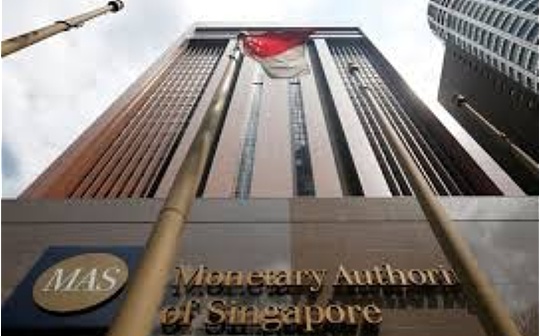After continuous mine-steps, Temasek's "big fund owner" of venture capital has changed its strategy

Reprinted from chaincatcher
06/06/2025·14DAuthor: Zhang Yaqi, Wall Street News
After experiencing a series of painful mine-breaking steps such as FTX and eFishery, Singapore's Temasek Holdings fell from US$4.4 billion in 2021 to US$509 million last year, and has invested only US$70 million so far this year. In a high interest rate environment, companies are turning to investing in a small number of companies closer to listing.
When one of the world's largest sovereign wealth funds begins to withdraw from the early investment track, the cold winter of the entire venture capital ecosystem may have just begun.
After experiencing a series of painful mine-steps such as FTX and eFishery, Singapore Temasek Holdings is shrinking its startup portfolio at an unprecedented rate: the company's investment scale has plummeted from US$4.4 billion in 2021 to US$509 million last year, and has invested only US$70 million so far this year.
What's even more exaggerated is that the number of its first round of investment projects has dropped sharply from 82 in 2021 to 11 last year -which means that the giant fund, which manages $300 billion in assets, has almost completely withdrawn from the early stage venture capital game.
According to the Financial Times on the 4th, insiders of Temasek revealed that fund management believes that rising global interest rates make it more difficult for startups to raise funds and hinder their opportunities to go public. A fund manager who knows the group's investment strategy said in an interview with the media:
"Temasek's portfolio has suffered considerable hits in recent years, and they are changing their strategies to gain more diversity while reducing volatility in returns."
Thunderstorm: The painful lesson from FTX to eFishery
Temasek's strategic shift is not groundless, but a bloody lesson learned from real money and silver. When cryptocurrency exchange FTX filed for bankruptcy in 2022, Temasek was forced to cancel $275 million in investment. As one of the largest investors in FTX, Temasek, along with SoftBank and BlackRock, became the victim of the biggest scam in the history of cryptocurrency.
The impact of this investment failure goes far beyond financial losses. Hwang Hsung-Cai (current Prime Minister), then Singapore's Finance Minister, publicly stated that the investment caused reputational damage. Temasek then imposed salary cuts on investment teams and senior management.
What is even more shocking is the collapse of Indonesian agritech company eFishery. The startup that developed the automatic feeding system for fish and shrimp farming was exposed to allegations of fraudulent sales and profit data. According to media reports in April, one of the founders of eFishery admitted to filling in false figures in the company's financial report.
Temasek's list of mine-breaking companies also include Singapore's e-commerce company Zilingo, gene therapy company Locanabio, Boston's Pear Therapeutics, and biotechnology company Tessa Therapeutics, etc.
Forced transformation in the era of high interest rates
The judgment of Temasek investment management team pointed directly to the core contradictions in the current market: rising global interest rates in the past few years have made it more difficult for startups to obtain capital and seriously affected their listing prospects. This financial dilemma has also exposed potential problems of several well-known startups.
Under the new investment framework, Temasek will continue to invest in startups indirectly through venture capital funds, but its direct investment has shifted to larger investments in smaller numbers but closer to listings. Currently, early-stage investments account for 6% of Temasek's portfolio, with about half of them passing through direct investment and the rest passing through venture capital funds.
Temasek's strategy adjustment also reflects the pressure on its overall performance. The fund's performance in recent years has been difficult to keep up with the pace of global stock markets: the fiscal year ended March 2024 was only 2%, while the S&P 500 rose 28% during the same period; the previous year saw a negative return of 5%.
As a sovereign fund established in 1974 to manage the equity of Singapore’s government’s largest corporate stake in the country, Temasek has grown into a global investor over the past two decades. Currently, unlisted companies account for just over half of their $300 billion portfolio value.
Temasek acknowledged the market reality in the statement:
"We have seen a pullback in market investment flows for early-stage investments since 2022, so we have taken a more cautious approach to new investments."
Although Temasek also has successful early investment cases such as Alibaba, Dutch payment company Adyen, American food delivery company DoorDash, and Indian company Eternal, which owns Zomato, it is obvious that even the most experienced institutional investors have chosen to act cautiously in the current market environment.

 jinse
jinse

